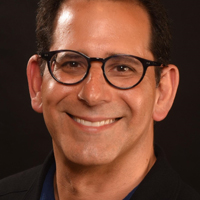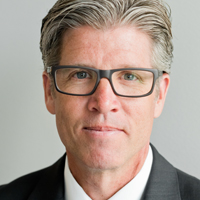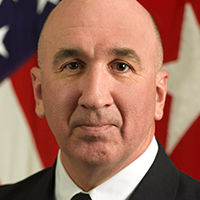Invest QSBS exclusion
Invest QSBS exclusion
Updated: 1/23/2013
The FTB issued Notice 2012-03 on December 21, 2012. The Notice states that the Court of Appeal’s holding in Cutler v. Franchise Tax Board (2012) 208 Cal. App. 4th 1247, that the qualified small business stock exclusion and deferral statutes determined that the qualified small business stock statues–California Revenue and Taxation Code (CR&TC) Sections 18038.5 and 18152.5–are invalid and unenforceable. The FTB will individually notify taxpayers who reported a qualified small business stock exclusion or deferral for taxable years beginning on or after January 1, 2008 that because these provisions are invalid and unenforceable, Notices of Proposed Assessments will be issued denying the exclusion or deferral.
Based on the Notice, FTB will allow QSBS gain exclusion for taxable years beginning before January 1, 2008.
To encourage investment in new ventures, small businesses, and specialized small business investment companies, Section 1202 of The Internal Revenue Code grants relief to investors who risk their funds in these businesses. California modified the 1202 rules to limit the exclusion only for those companies conducting a substantial portion of business within California during each of the test years.
Noncorporate investors may exclude up to 50 percent of gain they realize on the disposition of qualified small business stock issued after August 10, 1993 and held more than five years. The amount of gain eligible for the 50 percent exclusion is subject to per-issuer limits. The exclusion is available to taxpayers who own eligible stock in a qualified corporation (hold the stock for more than five years), and the corporation meets requirements that it actively conducts a qualified trade or business and is under a maximum gross assets test.
The five year holding period requirement can be satisfied no earlier than August 12, 1998, since the exclusion can only apply to stock issued after August 10, 1993.
For gain on its stock to qualify for the exclusion, a corporation must be a C corporation other than a
Disc
A regulated investment company
A real estate investment trust;
A real estate mortgage investment conduit;
A financial asset securitization investment trust;
A cooperative; or
A corporation electing the Puerto Rico and possessions tax credit.
Stock issued to a taxpayer cannot qualify -for the exclusion if the issuing corporation purchases (directly or indirectly) any of its own stock from the taxpayer or persons related to the taxpayer, with the four-year period beginning two years before the issue date. A ‘safe-harbor’ de ‘ ‘ is amount can be redeemed without rendering the stock ineligible for the exclusion. The aggregate amount paid for the stock by the issuing corporation in such redemptions cannot exceed $I 0,000 or more than 2 percent of the stock held by the taxpayer and all related persons.
Stock will also not qualify for the exclusion if the issuing corporation engages in a ‘significant redemption’. A redemption is significant if the corporation, within a two year period beginning one year before the issuance of the stock, redeems stock with an aggregate value exceeding 5 percent of the aggregate value of all the corporation stock. A de minimis exception applies if either the aggregate amount paid for all stock redeemed during the two year period does not exceed $10,000,000 or no more than 2 percent of all outstanding stock.
Regulation:
Cal. Rev. & Tax. Cd. § 18152.5 Exclusion from gross income of gain from sale or exchange of “qualified small business stock.”
Summary of Main Points in the Regulation §18152.5:
IRC 1202 allows the exclusion of the gain from the sale of QSBS under certain conditions. California does not conform to Sec. 1202. California does, however, have similar provisions for the exclusion of the gain from small business stock. (CR&TC §18152.5).
CR&TC §18152.5(a) allows for the exclusion of 50% of the gain from the sale or exchange QSBS held for more than five years.
§18152.5(b) requires that aggregate amount of the eligible gain from dispositions of stock issued by the corporation for the taxable year shall not exceed the greater of either of the following:
(a) Ten million dollars ($10,000,000 MFJ) reduced by the aggregate amount of eligible gain taken into account by the taxpayer under subdivision (a) for prior taxable years and attributable to dispositions of stock issued by the corporation.
(b) Ten times the aggregate adjusted bases of qualified small business stock issued by the corporation and disposed of by the taxpayer during the taxable year.
CR&TC §18152.5(c)(1) defines “Qualified small business stock” means any stock in C corporation, a qualified small business, which is originally issued after August 10, 1993 if the stock is acquired by the taxpayer at its original issue (directly or through an underwriter) in exchange for money or other property (not including stock), or as compensation for services provided to the corporation (other than services performed as an underwriter of the stock).
CR&TC §18152.5(c)(2)(A) requires that the corporation meet the active business requirements of §18152.5(e) for substantially all of the taxpayer’s holding period.
§18152.5(e)(1)(A) requires that the corporation use at least 80 percent (by value) of the assets of the corporation in the active conduct of one or more qualified trades or businesses in California.
§18152.5(e)(5)(B) requires that a corporation shall be treated as failing to meet the requirements of QSBS for any period during which more than 10 percent of the value of its assets (in excess of liabilities) consists of stock or securities in other corporations which are not subsidiaries of the corporation.
§18152.5(e)(6) provides that for purpose of the 80% asset test, the following assets shall be treated as used in the active conduct of a qualified trade or business: (A) Assets that are held as a part of the reasonably required working capital needs of a qualified trade or business of the corporation; and (B) Assets that are held for investment and are reasonably expected to be used within two years to finance research and experimentation in a qualified trade or business or increases in working capital needs of a qualified trade or business. For periods after the corporation has been in existence at least two year, in no event may more than 50% of the assets of the corporation qualify as used in the active conduct of a qualified trade or business by reason of this paragraph.
§18152.5(e)(7) requires that a corporation shall not be treated as meeting the requirements of QSBS for any period during which more than 10 percent of the total value of its assets consists of real property that is not used in the active conduct of a qualified trade or business (not including the ownership of, dealing in, or renting of, real property).
§18152.5(e)(8) requires that rights to computer software that produces active business computer software royalties (within the meaning of Section 543(d)(1) of the Internal Revenue Code) shall be treated as an asset used in the active conduct of a trade or business.
§18152.5(e)(9) requires that no more than 20% of the company’s payroll be attributable to employment outside of California.
§18152.5(d)(1) requires that to be a “qualified small business”, a C corporation should meet the following requirements:
(A) The aggregate gross assets of the corporation (or any predecessor thereof) at all times on or after July 1, 1993, and before the issuance did not exceed fifty million dollars ($50,000,000).
(B) The aggregate gross assets of the corporation immediately after the issuance (determined by taking into account amounts received in the issuance) do not exceed fifty million dollars ($50,000,000).
(C) At least 80 percent of the corporation’s payroll, as measured by total dollar value, is attributable to employment located within California.
(D) The corporation agrees to submit those reports to the Franchise Tax Board and to shareholders as the Franchise Tax Board may require to carry out the purposes of this section (e.g., Form 3565).
§18152.5(f) requires that if a corporation is acquired solely through the conversion of other stock in the corporation that is qualified small business stock in the hands of the taxpayer, both of the following shall apply: (1) the stock so acquired shall be treated as qualified small business stock in the hands of the taxpayer, and (2) the stock so acquired shall be treated as having been held during the period during which the converted stock was held.
§18152.5(h) requires that in the case of a transfer (e.g., by gift, at death, from a partnership to a partner), the transferee shall be treated as (i) Having acquired the stock in the same manner as the transferor; and (ii) Having held the stock during any continuous period immediately preceding the transfer during which it was held (or treated as held under this subdivision) by the transferor.
We hope you found this article about “Invest QSBS exclusion” helpful. If you have questions or need expert tax or family office advice that’s refreshingly objective (we never sell investments), please contact us or visit our Family office page or website www.GROCO.com.
To receive our free newsletter, contact us here.
Subscribe our YouTube Channel for more updates.

Alan Olsen, is the Host of the American Dreams Show and the Managing Partner of GROCO.com. GROCO is a premier family office and tax advisory firm located in the San Francisco Bay area serving clients all over the world.
Alan L. Olsen, CPA, Wikipedia Bio

GROCO.com is a proud sponsor of The American Dreams Show.

The American Dreams show was the brainchild of Alan Olsen, CPA, MBA. It was originally created to fill a specific need; often inexperienced entrepreneurs lacked basic information about raising capital and how to successfully start a business.
Alan sincerely wanted to respond to the many requests from aspiring entrepreneurs asking for the information and introductions they needed. But he had to find a way to help in which his venture capital clients and friends would not mind.
The American Dreams show became the solution, first as a radio show and now with YouTube videos as well. Always respectful of interview guest’s time, he’s able to give access to individuals information and inspiration previously inaccessible to the first-time entrepreneurs who need it most.
They can listen to venture capitalists and successful business people explain first-hand, how they got to where they are, how to start a company, how to overcome challenges, how they see the future evolving, opportunities, work-life balance and so much more..
American Dreams discusses many topics from some of the world’s most successful individuals about their secrets to life’s success. Topics from guest have included:
Creating purpose in life / Building a foundation for their life / Solving problems / Finding fulfillment through philanthropy and service / Becoming self-reliant / Enhancing effective leadership / Balancing family and work…

MyPaths.com (Also sponsored by GROCO) provides free access to content and world-class entrepreneurs, influencers and thought leaders’ personal success stories. To help you find your path in life to true, sustainable success & happiness. It’s mission statement:
In an increasingly complex and difficult world, we hope to help you find your personal path in life and build a strong foundation by learning how others found success and happiness. True and sustainable success and happiness are different for each one of us but possible, often despite significant challenges.
Our mission at MyPaths.com is to provide resources and firsthand accounts of how others found their paths in life, so you can do the same.
Mastering Business Growth with Howard Shore
Howard Shore, Founder and CEO of Activate Group Inc. discusses managing, even mastering, business growth and the challenges growing quickly can present on Alan Olsen‘s American Dreams Show. Transcript: Alan Olsen Welcome to American Dreams. My guest today is Howard Shore. Howard, welcome to today’s show. Howard Shore Alan, thank you for having me. Alan…
Prosperity and Self-Reliance Zealot Steve Alder
From North America to Ghana, Africa, Steve Alder, President of Ensign Global College (www.ensign.edu.gh), sits down to discuss how a professor helps to build global prosperity and self-reliance on Alan Olsen‘s American Dreams Show. Transcript: Alan Olsen Welcome to American Dreams I’m visiting here today with Steve Alder. Steve, welcome to today’s program. Steve Alder Thank…
Steve Young on Building an Epic Family Legacy
Retired 49r Steve Young Discusses Building a Family Legacy at the Legacy Builders Event on May 15, 2024 As GROCO celebrates three decades of excellence in family office tax and advisory services, we have developed the Legacy Builders to stands as a testament to the firm’s enduring vision: to transform wealth into a powerful tool…




